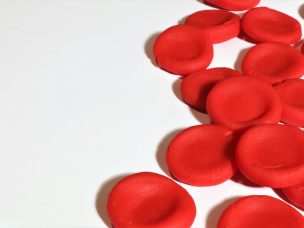Sickle Cell Disease (SCD) crisis prevention and management are crucial yet challenging, as pain crises can happen at any instance and require immediate attention. In addition, caregivers of patients with SCD bear a great deal of responsibility.
Caregiving responsibilities frequently come at a high psychosocial cost and necessitate significant lifestyle modifications. The prevalence of emotional distress and related characteristics among caregivers of teenagers with SCD are investigated in this study published in the Journal of Health Psychology.
This cross-sectional study was performed between October 2013 and May 2015 and studied caregivers of teenagers with SCD from a hematology clinic in Lagos State, Nigeria. Caregivers who were not suffering from mental illnesses or systemic diseases were included in the study.
Two scales were used to assess caregiver burden: the General Health Questionnaire (GHQ-12) for measuring emotional distress and the Parent Illness Intrusiveness Rating Scale (PIIRS) for measuring disruptions to caregiver lifestyle, relationships, and interests.
Ultimately, it was found that among the 121 caregivers, the average age was 43.59 years, and 76% were mothers. Caregivers spent an average of 33.34 hours per week with adolescents, of whom 74.4% had SCD crises within the last six months before study enrollment.
Moreover, the prevalence of emotional discomfort among caregivers was found to be 43.8%. Emotional distress was significantly linked to being a mother and a caregiver whose children visited hospitals more frequently. As measured by GHQ-12 scores, emotional distress was substantially linked with all PIIRS components.
This study concluded that evidence-based psychosocial assistance, including better crisis training and management to avoid hospital visits, is recommended to enhance the wellbeing of caregivers of patients with SCD. In addition, individualized psychosocial support to develop resilience and adaptive coping strategies is required to improve caregiver emotional health.
More research is needed to determine whether there are any adjustable predictors of psychosocial burden among caregivers of teenagers with SCD [1].
Source:
[1] Bioku, A. A., Ohaeri, J. U., Oluwaniyi, S. O., Olagunju, T. O., Chaimowitz, G. A., & Olagunju, A. T. (2020). Emotional distress among parent caregivers of adolescents with sickle cell disease: association with patients and caregivers variables. Journal of Health Psychology, 26(14), 2851–2860. https://doi.org/10.1177/1359105320935986










